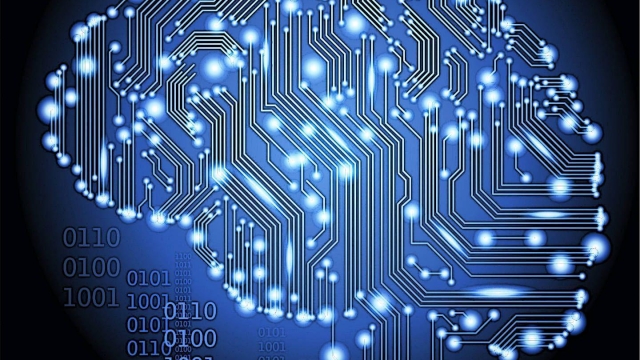
Artificial intelligence, often referred to simply as AI, is a cutting-edge technology that is revolutionizing industries across the globe. With rapid advancements in machine learning, neural networks, and natural language processing, AI has evolved from a futuristic concept to a practical reality. The ability of intelligent machines to mimic human cognitive functions such as learning, problem-solving, and decision-making is reshaping the way we work, live, and interact with technology.
Ai Search
As AI applications become increasingly integrated into our daily lives – from virtual assistants like Siri and Alexa to self-driving cars and personalized recommendations on streaming platforms – the potential of artificial intelligence to enhance efficiency and drive innovation is becoming more apparent. From healthcare to finance, production to entertainment, the transformative power of AI is unlocking new possibilities and sparking a wave of exciting developments in various fields.
History of AI
AI has a rich history that dates back to the mid-20th century. In the 1950s, the concept of artificial intelligence was formally introduced as a field of study with the aspiration to develop machines capable of mimicking human intelligence. Early AI research focused on symbolic methods and problem-solving techniques, laying the foundation for future advancements in the field.
The 1980s marked an era of significant progress in AI research, with the emergence of expert systems and the development of rule-based reasoning approaches. These technologies allowed computers to perform tasks that previously required human expertise, sparking renewed interest and investment in artificial intelligence research across various industries.
In the 21st century, AI has experienced unprecedented growth and innovation, fueled by advancements in machine learning and neural networks. Breakthroughs in areas such as natural language processing, computer vision, and autonomous systems have propelled AI into the forefront of technological revolution, shaping how we interact with machines and transforming industries worldwide.
Current Applications
In the realm of healthcare, artificial intelligence is revolutionizing how diseases are diagnosed and treated. From medical imaging analysis to personalized treatment recommendations, AI is enhancing the capabilities of healthcare professionals and improving patient outcomes.
The financial sector is also benefiting greatly from the use of artificial intelligence. Banks and financial institutions are leveraging AI algorithms for fraud detection, risk assessment, and automated trading. These advancements have increased efficiency and security in the industry.
Artificial intelligence has made significant strides in the realm of customer service. Chatbots powered by AI are becoming increasingly common, providing instant responses to customer inquiries and streamlining the support process. Additionally, AI tools are being used to analyze customer data and personalize marketing efforts, leading to improved customer satisfaction and retention.
Future Implications
Artificial intelligence is poised to revolutionize various industries, from healthcare to finance, by streamlining processes, enhancing efficiency, and driving innovation. As AI continues to advance, there is a growing concern about its impact on the job market, with fears of automation leading to job displacement. However, the future may hold opportunities for humans to work alongside intelligent machines, focusing on tasks that require creativity, emotional intelligence, and critical thinking.
Advancements in artificial intelligence also raise ethical considerations, particularly in areas such as privacy, security, and bias. As AI systems become more sophisticated, ensuring transparency and accountability in their decision-making processes becomes crucial. Governments and organizations will need to establish regulations and standards to address these ethical issues, safeguarding against misuse and ensuring that AI technologies benefit society as a whole.
Looking ahead, the integration of artificial intelligence into everyday life presents both exciting possibilities and challenges. From autonomous vehicles to personalized healthcare, AI has the potential to transform the way we live and work. As we navigate this rapidly evolving landscape, it is essential to approach the development and deployment of AI with caution, foresight, and a commitment to harnessing its power for the greater good.


